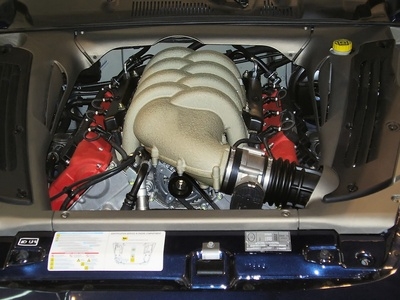
The word "turbo" immediately conjures up images of speed and sports cars. The belief is that a turbo charger is only useful if you want to go faster. While a turbo charge will do exactly that--make you go faster--there are also several other advantages for having one on your car. So if you are considering purchasing a car with a turbo charger, or having one installed, you may want to think about the other benefits to see if it works with what you are looking for.
Comparing an engine with a turbo charger and one without which produces the same amount of power, the engine with the turbo will use less fuel. This is because the actual engine size will be smaller. For example, if both engines produce 200 horsepower, the turbocharged version may be able to do this with only four cylinders, while the one without would require six cylinders. A turbocharged engine can get up to 20 percent better fuel economy.
With a smaller overall engine size to produce the same amount of power, the turbocharged engine is less noisy than a naturally aspirated engine. Also, the turbocharger acts as an additional silencer, muffling any noise generated.
Engines require air pressure to burn fuel and generate power. At higher altitudes there is lower air pressure, so regular engines will produce much less power. On the other hand, the performance and power generation of a turbocharged engine actually improves. This is because there is a greater pressure difference between the air pressure ahead of the turbo and the lower pressure at the exhaust. The turbocharger increases the density of air entering the engine to generate more power.
With fewer cylinders to produce the same amount of power, the overall engine size and weight will be less than a normal engine. A lighter car is more efficient. To generate the same amount of power with a regular engine, you need to make it bigger and heavier.
Governments are requiring that car manufacturers improve the average gas mileage and reduce the emissions produced in cars they manufacture. A turbocharged engine is smaller than a regular engine, burns less fuel and generates less environmentally unfriendly carbon dioxide.